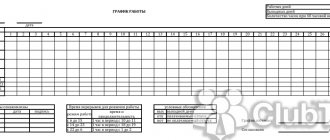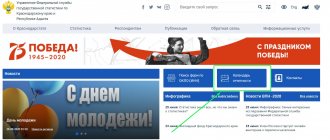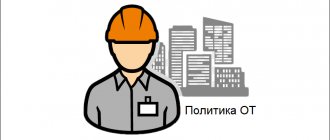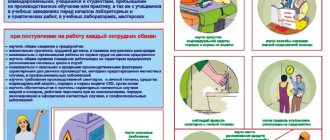Issues of labor protection in the Labor Code of the Russian Federation
The Labor Code of the Russian Federation is the main legislative act regulating labor relations between employees and individual entrepreneurs or legal entities of all forms of ownership. The main tenet of the document is the inalienable right of every citizen of our country to paid work in safe conditions. To ensure the protection of the life and health of workers employed in any sphere of the economy, the Labor Code of the Russian Federation contains an entire section devoted to labor protection issues. But the rules, requirements and standards of labor protection are contained not only in the X section of the Code of the same name, but also in the articles of other sections of the document.
Basic concepts of the Labor Code of the Russian Federation in the field of labor protection
The basic concepts, subject and objects of labor protection are spelled out in Article 209 of the Labor Code. According to this article, the concept of labor protection of the Labor Code of the Russian Federation means systemic measures aimed at preserving the life, physical and psychological health of workers during the performance of official duties. The complex of occupational safety measures includes both sanitary and hygienic, organizational and technical, as well as legal, socio-economic, therapeutic, preventive and other measures.
The object of labor protection is working conditions - the totality of all factors of the working environment that influence or can influence the safety of life and health of a worker.
From the point of view of danger to workers, production factors can be:
- Safe (not presenting a danger to human life or health and not requiring the use of special safety measures);
- Dangerous (having one or another level of injury risk);
- Harmful (negatively affecting health and capable of causing a particular disease).
If it is impossible to exclude workers from exposure to harmful or dangerous factors, the enterprise must use individual and/or collective protective equipment. These means reduce the influence of dangerous/harmful factors to an acceptable level.
All requirements, rules and standards of labor protection prescribed in the Labor Code of the Russian Federation are safety standards aimed at preserving the life and health of workers. Also, these standards are recognized to regulate social, economic, treatment and preventive measures aimed at ensuring proper working conditions.
Separately, Article 209 of the Labor Code of the Russian Federation spells out the concept of professional risks. This concept means that workers employed in certain areas of production or performing certain types of work have a higher risk of injury or illness. The task of an employer who employs people in positions with occupational risks is to reduce the level of these risks. The Labor Code of the Russian Federation also obliges owners and managers of any enterprises and organizations to take measures aimed at identifying, analyzing and reducing professional risks.
Change 2: Prohibition of work in hazardous conditions
note
It is expected that the ban on work in hazardous working conditions will be introduced from January 1, 2021.
If, based on the results of a special assessment, the work is considered dangerous—class 4 working conditions—then the employer’s activities will be suspended.
To resume the operation of the enterprise, the manager:
- approve a plan to eliminate dangerous class causes;
- will conduct an unscheduled special assessment or assessment of the level of professional risk.
Employers determined by the Government of the Russian Federation will not be subject to the ban.
Currently, workers are allowed to work in hazardous working conditions if the employer provides them with compensation:
Compensation for workers who are employed in harmful and dangerous working conditions
| Types of compensation | Classes of working conditions | Harmful | Dangerous | 3.1 | 3.2 | 3.3 | 3.4 | 4 |
| Reduced working hours - no more than 36 hours per week (Article 92 of the Labor Code of the Russian Federation) | — | — | + | + | + | |||
| Annual additional paid leave - at least 7 calendar days (Article 117 of the Labor Code of the Russian Federation) | — | + | + | + | + | |||
| Increased wages - at least 4% (Article 147 of the Labor Code of the Russian Federation) | + | + | + | + | + | |||
| Additionally | ||||||||
| Milk or other equivalent food products (Article 222 of the Labor Code of the Russian Federation, order of the Ministry of Health and Social Development of Russia dated February 16, 2009 No. 45n) | ||||||||
| Therapeutic and preventive nutrition (Article 222 of the Labor Code of the Russian Federation, order of the Ministry of Health and Social Development of Russia dated February 16, 2009 No. 46n) | ||||||||
Responsibilities of the employer to ensure labor safety
The Labor Code of the Russian Federation clearly regulates the employer’s responsibilities for labor protection. According to the Code, it is the employer (legal entity or individual entrepreneur) who must take measures aimed at ensuring the safety of employees. Responsibility for ensuring compliance with occupational safety standards in a company also lies primarily with the owner or manager.
In order to ensure safe working conditions, the employer must:
- Implement an occupational safety management system and organize professional retraining of a specialist responsible for occupational safety at the enterprise, or the head of the occupational safety service. Professional retraining lasting 256 hours must be completed at a training center licensed by the Department of Education
- Create safe workplaces
- Ensure the safety of employees during the production process
- Ensure that buildings, structures, mechanisms, equipment, technologies and consumables are safe for the life and health of personnel
- Bring the work regime and schedule into compliance with labor law standards prescribed in Sections V and VI of the Labor Code, as well as in federal legislative and by-law documents
- Provide employees at the expense of the enterprise with special clothing, protective equipment and other materials necessary to neutralize the influence of dangerous or harmful factors
- Use only those protective equipment that have certificates of compliance with current GOSTs
- Organize labor safety training for all specialists and department heads, and also instruct all employees on labor safety issues and train them in first aid before allowing them to perform their official duties.
- Constantly monitor employee compliance with labor safety rules
- Constantly improve the labor protection system and take measures to reduce occupational risks and the risks of accidents and incidents at work
- Organize and pay for preventive medical examinations of employees and do not allow employees to work who have not been examined or who have not received a doctor’s permission to work
- Insure employees against accidents at work
- Provide access to employees of State Inspectorate and other supervisory authorities to the territory of the enterprise so that they can monitor compliance with labor safety standards
Also, Article 212 of the Labor Code of the Russian Federation obliges the employer to organize a labor protection service in the company, develop and approve occupational safety instructions. According to Article 217 of the Labor Code, enterprises employing 50 or more people must have either the position of an employee responsible for labor protection or an entire department dedicated to the development, implementation and improvement of the occupational safety system and monitoring the implementation of safety regulations.
In small and micro organizations, where no more than 50 people work, Article 217 of the Labor Code of the Russian Federation allows the manager to perform the duties of a full-time occupational safety specialist himself. This means that an individual entrepreneur or the owner of a small enterprise must himself or with the help of hired professionals develop occupational safety rules, draw up safety instructions, provide personnel with protective equipment and ensure that all labor safety standards and regulations are strictly observed.
It is also important that Article 212 of the Labor Code of the Russian Federation requires employers to keep in free access at the enterprise a set of all regulatory documents relating to labor safety issues in a particular sector of the economy. This set should include both industry and intersectoral rules, as well as job descriptions, safety instructions and work/rest routines.
Risk assessment by the employer
| Important! The new obligation of the employer in accordance with the latest changes in labor protection legislation is to monitor occupational safety, detect hazards and carry out their regular assessment. |
As part of the changes to the labor protection project, the Ministry of Labor will develop requirements for organizing safe workplaces, and will also prepare recommendations for the classification, identification, recognition and description of risks. Thus, the employer is responsible for creating lists of hazards at the enterprise and developing measures to prevent them.
Within the meaning of Art. 278 TC - hazards must be detected, recognized and described. This work should be carried out during:
- monitoring labor conditions and safety;
- compliance with occupational safety requirements in organizational units and workplaces;
- identifying and studying industrial accidents and occupational diseases;
- studying the causes that led to microdamages (microtraumas).
What are microdamages
The concept of “microtrauma” is included in a separate chapter of Section 10 on labor protection of the Labor Code of the Russian Federation. These are superficial injuries, such as abrasions, bruises, received during work. They do not cause temporary disability and do not cause serious harm to health. However, recording minor injuries can prevent more serious damage to a worker's health.
The basis for recording and subsequent study of the causes of microtraumas is the employee’s request. The Ministry of Labor will develop and publish clarifications on the recording of microdamages.
Responsibilities of employees regarding labor protection
Employees have many times fewer responsibilities regarding labor protection than employers. These responsibilities, according to Article 214 of the Labor Code of the Russian Federation, are limited to the need to comply with occupational safety standards and safety regulations, and to use available individual and/or collective protective equipment in a timely and correct manner. Also, employees must be trained in labor protection, first aid methods and the algorithm of actions in case of emergency. In the event of accidents or incidents at work and in the event of symptoms of an occupational disease or deterioration in health, employees are required to notify the employer.
Separately, the Labor Code obliges workers to undergo medical examinations before employment and during their working career. If the employer or government supervisory authority issues an order to undergo an unscheduled medical examination, employees are required to obey this order.
Article 213 of the Labor Code of the Russian Federation, section “Occupational Safety”, regulates in more detail the requirements for employees to undergo mandatory preventive medical examinations. In particular, this article states that all people working with hazardous materials or employed in positions with high professional risks are required to undergo an examination by a psychiatrist at least once every 5 years. This requirement does not contradict the Constitution, but if it is not observed, both the employee and the employer will be subject to sanctions in accordance with Article 5.27 of the Code of Administrative Offenses of Russia.
General requirements of the Labor Code for labor protection of personnel
The Labor Code of the Russian Federation regulates all areas and issues related to labor protection in one way or another. In particular, Section VI, Articles 160 and 163 state that the employer cannot set excessive or unreasonable labor standards. He is also obliged to provide workers with equipment and create conditions in which they can fulfill the established norm without risking their physical and psychological health.
Important labor protection requirements in the Labor Code of the Russian Federation are also specified in Article 223. According to it, the employer undertakes to provide adequate conditions for work and rest at the enterprise. Workplaces must comply with labor safety standards, and workers must have a bathroom, an area for eating (kitchen), a room or area for rest and psychological relief. Also, the owner of the enterprise or the person in charge must take care of equipping first aid stations.
In the event of an emergency or deterioration in the health of one of the employees, the employer, at his own expense, must organize transportation of injured (sick) employees to medical centers or home.
General labor protection requirements
The rights and obligations of the employee and the employer regarding labor protection, safety and hygiene are regulated by a number of documents:
Subscribe to our newsletter
Yandex.Zen VKontakte Telegram
- labor protection rules;
- industry and inter-industry instructions and standards;
- SanPiNami;
- collective agreements;
- Chapter 34 of the Labor Code of the Russian Federation, etc.
Each employer bears administrative and criminal liability for failure to comply with labor protection requirements. It is not uncommon for enterprises (most often operating in the service sector and belonging to small ones) to ignore them. However, although occupational safety issues are of greater importance for large manufacturing organizations, they must be observed in any enterprise.
General requirements include:
- ensuring the safety of employees when performing their job duties and eliminating the possibility of emergency situations;
- compliance with the work and rest schedule of employees;
- provision of special clothing at the expense of the employer;
- instruction on labor safety issues not only upon hiring, but also with certain internal documentation at intervals, as well as periodic testing of knowledge;
- prohibition from work of employees who have not undergone safety training and examination by a doctor (applies to certain professions);
- organization of compulsory medical insurance against possible accidents and occupational diseases, etc.
Each enterprise must develop its own labor protection requirements, taking into account individual characteristics. The management’s task is to familiarize each employee with them under signature.
Standards of the Labor Code of the Russian Federation regulating labor protection of certain categories of workers
The Labor Code specifically protects the right to work in safe conditions for the most vulnerable categories of workers. Section XII of the Labor Code of the Russian Federation stipulates guarantees, norms and rules regarding the organization of labor of such categories of citizens as women, minor employees, disabled people, people with dependents, persons working in seasonal, rotational work or remotely.
Women's labor protection
- Article 253 of the Labor Code of the Russian Federation limits the use of female labor in work that is harmful or dangerous to the female body. Such work includes lifting heavy objects, duties related to the operation of dangerous and harmful substances, mechanisms, etc. The lists of work for which it is prohibited to involve women, and positions for which the employment of females is not recommended, are regularly reviewed and changed. Improvements in technology make it possible to make production processes safer, and many professions that were prohibited for women 5 years ago have already been removed from the List (Order No. 512n of the Ministry of Labor of the Russian Federation).
- It is important that Article 253 of the Labor Code states that the employer has the right to involve women in potentially dangerous and harmful work if he takes measures to reduce the danger to the female body. For example, women should not be required to lift heavy objects manually. But if female workers have mechanisms or tools at their disposal to reduce the load on the body when lifting heavy objects, they can perform such work.
- As for pregnant women and women with toddlers, the labor protection requirements of the Labor Code of the Russian Federation for these categories of citizens are even more stringent. In particular, Article 259 of the Labor Code of the Russian Federation prohibits sending such employees on long business trips, leaving them overtime, calling them to work at night, weekends and holidays. An exception is the written consent of a pregnant woman or an employee with children under 3 years of age for a business trip or night/overtime work.
Labor protection for workers under 18 years of age
- The Labor Code of the Russian Federation allows the employment of minors for permanent or seasonal work. According to Article 270 of the Labor Code of the Russian Federation, either standard or reduced production standards can be established for employees under 18 years of age. Increasing the standards above those specified in the regulations and rules regarding labor standards in relation to minor workers is not allowed.
- Workers under 18 years of age, according to Article 265 of the Labor Code of the Russian Federation, are prohibited from being employed in harmful and dangerous industries, or from being assigned to work with harmful/hazardous substances, tools or materials. The Code also prohibits employers from employing minors in positions that are dangerous to the moral development of a teenager (selling alcoholic beverages, cigarettes, 18+ goods, working in casinos, nightclubs, etc.).
- Labor protection standards for minors also apply to overtime work, work at night and on weekends. Article 268 of the Labor Code of the Russian Federation directly prohibits an employer from leaving employees under 18 years of age overtime and at night, as well as sending them on long business trips. The exception is cases when the minor’s work is related to concert activities and directly involves going on tour and performing late in the evening.
- Before employing an employee under 18 years of age in a particular position, the employer is obliged to pay for him to undergo a medical examination (Article 266 of the Labor Code of the Russian Federation). Also, according to this article, the employer is required to organize, at the expense of the enterprise, annual medical examinations for minor workers.
- Familiarize personnel working remotely with labor safety standards and safety instructions for the operation of equipment provided or recommended for the performance of official duties;
- Insure employees against accidents while performing their official duties;
- In the event of an emergency or diagnosis of an occupational disease in a remote worker, register and investigate these cases; 6.3.1.4. When protecting the labor of remote workers, be guided by the requirements of the Labor Code of the Russian Federation, federal laws and regulations (orders) of state supervisory authorities.
Labor protection for people working remotely
With employees working remotely, the employer must conclude an appropriate employment contract that meets all the standards of Section III of the Labor Code. But the requirements of the Labor Code of the Russian Federation for organizing labor protection for remote workers are much more flexible.
According to Article 312.3 of the Labor Code of the Russian Federation, the employer is obliged to:
In addition to the obligations listed above in the field of labor protection, the Labor Code of the Russian Federation requires the employer to fulfill all obligations specified in the employment contract with the employee. It is also important that when it comes to remote work with hazardous or harmful substances, the employer must take care of personal protective equipment for employees.
Labor protection of persons working in harmful or dangerous conditions
- For personnel employed in hazardous or hazardous industries or working in areas with an unfavorable climate, Articles 146-149 of the Labor Code of the Russian Federation guarantee increased wages and special leave conditions.
- Article 222 of the Labor Code of the Russian Federation, in turn, requires the employer to provide such employees with milk or other food of equivalent health benefits. Also, the company’s management is required to either provide employees who work with harmful or hazardous materials with therapeutic and preventive nutrition every working day, or compensate them for the cost of such a diet.
- Another responsibility of an employer running an enterprise with harmful or dangerous working conditions is to provide employees with certified personal protective equipment and a place to store them. This norm is prescribed in Article 221 of the Labor Code.
New rights and obligations of the employer regarding occupational safety
The employer’s responsibilities in the new Chapter 10 of the Labor Code of the Russian Federation “occupational safety” are mainly limited to measures to prevent injuries and illnesses. This is permanent monitoring and identification of hazards in production.
Briefly about the responsibilities:
- security;
- vocational training at the expense of the organization in case of liquidation of a workplace due to violation of labor safety requirements - para. 8 hours 1 tbsp. 216 of the updated section of the Labor Code;
- prohibition of work in hazardous conditions.
In section 10, the employer has new rights:
- It will become easier to terminate an employment contract with an employee responsible for an accident (Clause 6, Part 1, Article 81);
- document flow on labor protection can be carried out electronically;
- monitor industrial safety using remote devices, store the information received and provide access to surveillance and electronic document databases to government supervisory authorities.
| Advice If the employer decides to monitor work remotely, he is obliged to inform employees about this - para. 4 tbsp. 214.2 of the draft labor code. |
- independently assess the degree of compliance with the requirements of the Labor Code by the company and conduct self-assessment on the special website of Rostrud using checklists.
| Self-examination is a new format for self-checking within the framework of 248-FZ dated July 31, 2020, which comes into force on July 1, 2021. |
By this time, the special website of Rostrud should be operational. The department should also develop recommendations:
- on self-examination;
- on preparation of declarations.
The employer has the right to receive a declaration of compliance with mandatory requirements if he receives a high rating based on the fact of self-examination. It will need to be sent to Rostrud for registration and posting on the official website of the department. The declaration is valid for 1-3 years.
| Important! If, during an unscheduled inspection of the Civil Inspectorate, violations of labor safety standards are detected or false facts are transmitted during a self-examination, the declaration is canceled. |
The rules for self-examination are prescribed in Art. 51 No. 248-FZ and art. 22 of the Labor Code, section 10 “labor protection”.
Prohibition of work in hazardous conditions
| Important! One of the new duties was a ban on work if, based on the results of a special assessment, the workplace is assigned class 4. |
The employer must:
- suspend work, draw up and approve a plan for eliminating the dangerous class;
- assess the level of profrisk or conduct an unscheduled special assessment.
During the shutdown, workers retain their place of work and average salary. It is also possible to transfer employees to another workplace while maintaining the same wage level.
| This principle does not apply to work resulting from an emergency. Additionally, the government will approve a list of works that are not subject to the ban. |
Occupational safety training
Article 225 of the Labor Code of the Russian Federation, which regulates labor safety training, makes it obligatory for everyone to undergo such training - both employees and managers of organizations of all forms of ownership, and individual entrepreneurs. The State, in turn, undertakes to facilitate the training of citizens in labor safety standards.
All new employees, before starting to perform their duties, as well as employees transferred to other positions, must be familiarized with the labor protection instructions. Also, the employer (or the employee responsible for occupational safety in the organization) must provide first aid training and provide guidance on the safe operation of equipment and equipment.
Organization of personnel training and testing of employees’ knowledge of labor protection is the responsibility of the employer. Separately, Article 225 of the Labor Code of the Russian Federation states that employees working in positions with high occupational risks, dangerous/harmful working conditions must periodically undergo training and recertification in occupational safety during work.
Employer's goals in the field of labor protection
The employer’s goals must be clearly outlined in the relevant section of the OSHMS (occupational safety and health management system) regulations adopted at the enterprise and correlated with the labor protection policy (standard OSHMS regulations, approved by Order of the Ministry of Labor of the Russian Federation dated August 19, 2016 No. 438n). The number of goals and their formulation depend on the specifics of the organization's activities, but they must be measurable and assessable.
The most common goals of employers in the field of labor protection are:
- Respect for workers' rights in accordance with current legislation.
- Reducing the level of injuries (mainly for manufacturing enterprises) and occupation-related diseases.
- Preservation and restoration of workers' health.
- Optimization of material costs aimed at ensuring labor safety, etc.
IMPORTANT! As of the end of 2021, there is no regulatory legal act regulating the time frame for an enterprise to create an OSMS regulation, although in practice, labor inspectors check whether this document is available. Moreover, its absence is punishable by a fine (up to 5,000 rubles for a manager, up to 80,000 rubles for an organization; these amounts can increase to 40,000 rubles for an official and 200,000 rubles for a legal entity if the violation is not eliminated by the time of re-inspection) or suspension of the organization’s activities. These sanctions are indicated in Art. 5.27.1 Code of Administrative Offenses of the Russian Federation.






